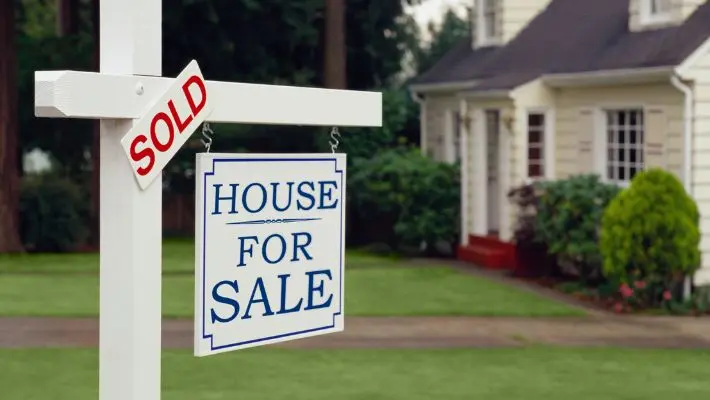
What Happens if the Home Appraisal is Lower than my Offer?
If the appraisal comes back with a lower home value than your offer, you may be wondering if you can proceed with buying. You can - here's how.
You’ve found your dream home, you’ve put in an offer, and the ball is rolling to make it yours.
But you’ve hit a bump in the road. Sometimes, the home appraisal will cause the buying process to come to a screeching halt. If the appraisal comes back with a lower home value than what you offered the seller, you may be wondering if you can proceed with buying.
Here’s what you can expect.
The Home Appraisal Process
When a buyer makes an offer on a home, and the offer is accepted by the seller, the home appraisal process begins. Home appraisal ensures the selling price is legitimate in comparison to the offer made by the buyer.
The home appraisal process is conducted by a professional appraiser, who will create an appraisal report for the property in question after visiting the home and evaluating the property. The appraiser looks at location, size, condition, and features and amenities of the home to calculate its value in the current market.
Next, the appraiser compares their findings to similar homes in the area that sold recently. By making this comparison against their report, the appraiser can ensure the home is being appraised at the most accurate price in the market.
How the Appraisal Process Affects Buying
If a home is appraised at a lower price than what you offered, it’s not as simple as adjusting your offer to match.

Mortgage lenders want to see the appraised value of the home lined up with the mortgage loan amount you’ve been approved for. If the appraisal comes in lower than your offer, you’ll need to put more money down to purchase the home.
Why is this the case? Lenders calculate your mortgage loan against what the property is valued. This calculation is conducted through a formula called the loan-to-value ratio as a percentage. This ratio is based on the final appraised value of the home, not what you offered and placed in the contract.
What Happens If the Home Appraisal is Lower Than Your Offer
If the appraisal uncovers the home is valued lower than what you offered the seller, don’t panic — you have options that don’t have to include paying a higher price. But first, why does a lower appraisal happen? And what exactly does it mean?
If the appraiser has determined the value of the home to be lower than the purchase price agreed upon by the buyer and seller, the home is considered to be appraised low.
Lenders base the amount they’ll finance for a home loan on the results of the appraisal. Uncovering a low appraisal can cause roadblocks to closing. Thankfully, having a backup plan and working closely with your real estate agent can keep your home purchase on track.
Here’s what you can do next:
Partner Up with Your Trusted Real Estate Agent
Your real estate agent is equipped to examine every aspect of the contract, including your appraisal contingency clause. This clause is included in purchase contracts specifically for buyers to cancel the contract if the home appraisal is lower than the purchase price they agreed upon with the seller.
Typically, these clauses are placed in contracts by buyers who are taking out a mortgage to purchase the home. This contingency unlocks the opportunity for you to pull out of the contract without losing your offer or other penalties.
Your trusted agent can guide you through this process, and go to bat for you through negotiations with the seller and their agent.
Negotiate the Price
While a lower home appraisal can seem intimidating, it can actually cause you to have the upper hand.

Sellers don’t want to lose out on a successful sale, and if they’ve discovered their home’s value is less than anticipated, they may encounter issues with future buyers if they relist. They also don’t want to start this process all over.
This is where negotiating comes in.
Now that the seller has a professional data-backed appraisal in hand, they may be more open to adjusting their asking price. If not, you can ask your agent to negotiate things like seller concessions or seller financing.
Seek a Second Appraisal
You can also tap your real estate agent about your options to partner with them and your lender to seek a second appraisal.
Some reports may not factor in all features, amenities, or even accurate square footage of a home. If you — or your agent — feel there’s a discrepancy, a request for correction can be submitted. The original appraiser can amend their findings, or you and your agent can source a new appraiser altogether.
If a discrepancy is discovered, proof can be submitted to your lender with help from your agent so the deal continues to move forward. Keep in mind, a second appraisal may cause delays, as well as additional costs.
Cancel the Contract Altogether
If the seller isn’t budging, or the price is dramatically different than your offer or expectations, you can use the appraisal contingency clause. This will allow you to back out of the purchase and receive a full refund of your offer without ramifications.
Don’t go it alone. While about 8% of homes were found to be appraised lower than offers, you’ll want to ensure you have a professional, trusted real estate agent in your corner to protect your best interest — and help you navigate any nuanced scenarios that arise.
It's essential to work with a top real estate agent in your area who can support you through all sorts of transaction challenges. You can find the best agents in your local market by using RealEstateAgents.com today.






